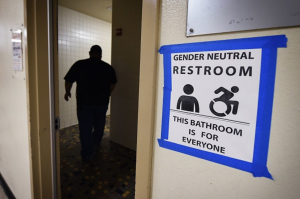My statement that it is “simply a fact that people who work hard, finish their education, get married, and stay married are rarely — very rarely — poor” has kicked up a hornet’s nest here on the Revolution, on NRO, at the Gospel Coalition, and elsewhere. While I unpacked my theological arguments a bit more in this post, I thought I’d share some core facts about unemployment, eduction, education, and marital status.
Unemployment rate of civilians with less than a high school diploma: 14.1%
Unemployment rate of civilians with a high school diploma (but no college): 9.1%
Unemployment rate of civilians with a high school diploma and some college or an associate’s degree: 8.5%
Unemployment rate of civilians with bachelor’s degree and higher: 4.7%
Poverty rate of individuals who worked full-time, year-round: 2.7%
Poverty rate for all workers (including part-time): 6.9%
Median annual household income for a household with a married couple: $71,830.00
Median annual household income for a male householder, no wife present: $48,084
Median annual household income for a female householder, no husband present: $32,597
Poverty rate for a family with a married couple: 5.9%
Poverty rate for a family with a male householder, no wife present: 16.9%
Poverty rate for a family with a female householder, no husband present: 29.9%
These statistics don’t even include the effects of drug use and criminality. If we can easily identify the risk factors for poverty, shouldn’t our anti-poverty efforts be focused on those risk factors? Why do we de-humanize the poor by pretending they’re incapable of staying in school, of abstaining from pre-marital sex, of getting married or staying married?
No single person reading this blog can change the macro-economic forces that have driven factories out of cities and limited opportunities in vast areas of our country, but is your message to the poor that they should throw up their hands and give in to the temptations of destructive behavior? Or is your message something different: that their parents’ choices don’t define their destinies, that they can persevere, and when they d0 — even it is the challenge of a lifetime — not only will their lives be better but their children will have much greater prospects?
Or why leave your involvement with a mere message? After all, the thoughts in your head — even if passionately expressed on a blog comment board — are basically irrelevant to any person’s destiny. Why not invest yourself fully in individual lives? Mentor young people, take in foster children, think about adopting the orphaned and abandoned. Take action to counter the prevailing pressures of the poverty-stricken communities with your own, living breathing example. No one is righteous, but we can point our struggling neighbors to the One who gives life and hope.
But as you reach out, understand that you’re taking a risk. Hollywood endings are rare. I’ve been robbed, exploited, and left heartbroken by some of the kids I tried to mentor, but there are few greater joys than seeing the work of the Gospel in the heart of a young guy who was drifting into oblivion and witnessing a true transformation as cycles of poverty and despair turn into lives of virtue and promise.
The poor are accountable for their actions — as we all are — but with accountability comes hope. There is a better way.









